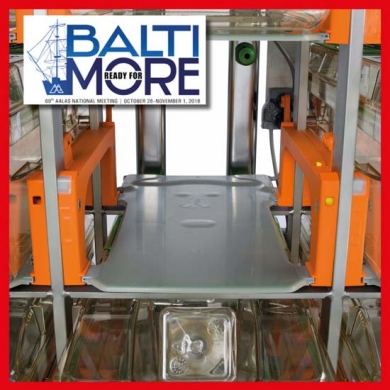
The current version of the Tecniplast website doesn't match your region. Please visit your local website to find information and offerings specific to your country.

The current version of the Tecniplast website doesn't match your region. Please visit your local website to find information and offerings specific to your country.


An extremely interesting Seminar, titled “Reproducibility: From the Tank/Cage Side for Better Research and 3R's” has been organized at the recent AALAS conference. The Seminar was a real success, considering both the number of participants and the questions raised during the closing Q&A time.
The session aimed at considering practical options to achieve better research reporting and reproducibility. Participants learnt about reporting of environmental conditions for animal research models and additional steps to ensure more rigorous reporting. The impact of environmental factors as contributors to experimental variation is generally underestimated, and these information are rarely shared or even requested. The problem was addressed by:
1) developing a summary environmental report for research fish facilities and
2) disseminating these data by depositing this document into an accessible web-based platform for data sharing called protocol.io.
In addition to this, it has been pointed out that Pharmaceutical and CROs contended with regulatory requirements involving extensive QA QC and documentation that includes Macro- and Micro-environmental data collection and reporting.
Examples of the practical application of digital information within a unit and across a global organization, as well as its effects on study reproducibility, have been reported. Husbandry impacts on reproducibility and data consistency was addressed by the last speaker.
Differences in cage components, housing density, cage changing frequency and practices have been recognized as elements that impact animal development, physiology and behaviour. This interesting Seminar concluded, listing some suggestions to improve reproducibility of rodent research.